AIR MARSHAL AWADHESH KUMAR BHARTI ON ATMANIRBHAR BHARAT: “INDIGENISATION IS THE PREREQUISITE FOR NATIONAL SECURITY”
BY DEFENCE JOURNALIST SAHIL | T.I.N. NETWORK
Delhi, 30 September 2025 — In a robust reaffirmation of India’s pursuit of self-reliance in defence and aerospace, Air Marshal Awadhesh Kumar Bharti, a senior leader of the Indian Air Force (IAF), emphasized the critical role of indigenisation in building a future-ready, resilient military ecosystem. Addressing a high-level seminar on defence innovation and strategic self-reliance, he outlined how the journey towards Atmanirbhar Bharat is both gradual and imperative, particularly in times of crisis when dependence on external sources can jeopardize national security.
“We are looking at self-reliance. Indigenisation is the way forward, because we are never able to indigenize 100% in one go. You start with whatever you can, and thereafter, ultimately, we reach 100%,” Air Marshal Bharti said, stressing the iterative nature of India’s defence manufacturing and technological development.
Indigenisation as a Strategic Imperative
According to Air Marshal Bharti, indigenisation is not merely a policy objective but a strategic necessity, particularly in domains such as aerospace, avionics, and advanced weapons systems. He highlighted that in times of geopolitical crises or conflicts, reliance on foreign suppliers is a vulnerability that India can no longer afford. “In times of crisis, you can’t bank on anybody. It has to be yourself. If something comes from outside, it is a bonus. However, the capability must originate within the country. So, indigenisation is a prerequisite,” he noted.
This approach aligns with the broader goals of the Make in India and Atmanirbhar Bharat initiatives, which have been accelerating efforts to localize defence production, enhance technology development, and build a self-reliant industrial base.
The Gradual Path to 100% Self-Reliance
Air Marshal Bharti acknowledged the challenges inherent in achieving full indigenisation, explaining that 100% self-reliance cannot be achieved overnight. He outlined a phased approach where India begins with what is technologically feasible domestically and progressively builds toward complete capability.
He cited examples from aircraft manufacturing, missile systems, and avionics: early projects relied on foreign components and collaboration, but domestic R&D, public sector units, and private industry participation gradually reduced dependence. “You start wherever you can. Step by step, component by component, system by system, you build the full capability. This is the essence of self-reliance,” he explained.
Crisis-Driven Imperative
The Air Marshal emphasized that self-reliance is not only about economic or industrial advantage but also a strategic buffer in emergencies. Drawing on historical precedents and operational lessons, he explained that during conflicts, procurement delays, embargoes, or supply chain disruptions from foreign sources could severely compromise operational readiness.
“In times of crisis, if you depend on others, you risk delays, denials, or uncertainties. National security demands that the critical technologies, systems, and capabilities originate domestically,” he said, reinforcing the concept that self-reliance is inseparable from operational sovereignty.
Integrating Industry, R&D, and Defence Forces
Air Marshal Bharti also highlighted the role of domestic industry, research institutions, and defence laboratories in India’s indigenisation journey. Collaboration between the Defence Research and Development Organisation (DRDO), private sector manufacturers, and armed forces has accelerated the development of advanced platforms, unmanned systems, radars, and electronic warfare solutions.
“Indigenisation is not a single entity’s responsibility. It requires synergy among research, industry, and the services to ensure that innovations translate into operationally viable systems,” he stated. He emphasized that this collaborative model is now being applied across air defence, fighter aircraft, drones, and emerging technologies such as artificial intelligence and cyber capabilities.
Beyond Hardware: Strategic Autonomy
While technological self-reliance is a cornerstone, Air Marshal Bharti stressed that strategic autonomy in policy and decision-making is equally critical. Dependence on foreign systems can translate into external influence on operational doctrines, procurement priorities, and deployment strategies. Indigenisation, therefore, is a tool to safeguard both national security and policy independence.
“When your capabilities originate within the country, your decisions remain sovereign. You are not bound by external constraints or conditionalities. This is the essence of Atmanirbhar Bharat in defence,” he elaborated.
Policy Recommendations and Future Outlook
The Air Marshal outlined several policy directions to further India’s indigenisation agenda:
- Encouraging private sector participation in advanced defence manufacturing.
- Strengthening public-private partnerships in research, development, and production.
- Enhancing skill development to create a talent pool capable of handling next-generation technologies.
- Accelerating indigenous R&D projects in avionics, UAVs, electronic warfare, and missile systems.
- Promoting innovation in critical supply chains to reduce reliance on imported components.
He concluded with a call to view indigenisation not just as a target but as a continuous process, where incremental achievements cumulatively strengthen India’s defence ecosystem.
Conclusion
Air Marshal Awadhesh Kumar Bharti’s insights underscore that self-reliance in defence is both a strategic necessity and a national imperative. By gradually indigenizing technology, integrating industry with R&D and armed forces, and building resilient operational frameworks, India aims to achieve complete technological autonomy.
His message was clear: Atmanirbhar Bharat is not just an economic slogan but a security doctrine. In the volatile geopolitical environment of the 21st century, India’s ability to design, develop, and deploy its own defence systems will define the nation’s operational readiness, sovereignty, and strategic independence.
As India continues its indigenisation journey, every step taken—whether in fighter aircraft, missile technology, unmanned systems, or defence electronics—reinforces the principle that true security comes from within.
वायुसेना उपप्रमुख एयर मार्शल अवधेश कुमार भारती का आत्मनिर्भर भारत पर वक्तव्य: “राष्ट्र की सुरक्षा के लिए स्वदेशीकरण अनिवार्य”
BY DEFENCE JOURNALIST SAHIL | T.I.N. NETWORK
दिल्ली, 30 सितंबर 2025 — भारत की रक्षा और एयरोस्पेस क्षेत्र में आत्मनिर्भरता की दिशा में निरंतर प्रयासों को दोहराते हुए भारतीय वायुसेना के वरिष्ठ अधिकारी एयर मार्शल अवधेश कुमार भारती ने स्वदेशीकरण (Indigenisation) को भविष्य-उन्मुख और मज़बूत सैन्य ढाँचा बनाने की बुनियादी शर्त बताया। उन्होंने रक्षा नवाचार और सामरिक आत्मनिर्भरता पर आयोजित एक उच्च स्तरीय संगोष्ठी को संबोधित करते हुए कहा कि आत्मनिर्भर भारत की यात्रा क्रमिक है, लेकिन यह राष्ट्रीय सुरक्षा के लिए अपरिहार्य है, क्योंकि संकट के समय बाहरी स्रोतों पर निर्भरता घातक सिद्ध हो सकती है।
“हम आत्मनिर्भरता की ओर देख रहे हैं। स्वदेशीकरण ही आगे का रास्ता है, क्योंकि हम एक ही बार में 100 प्रतिशत स्वदेशी नहीं हो सकते। जो संभव है, वहीं से शुरुआत करनी होगी और धीरे-धीरे अंततः हम 100 प्रतिशत तक पहुँचेंगे,” एयर मार्शल भारती ने कहा, यह रेखांकित करते हुए कि भारत की रक्षा विनिर्माण और तकनीकी विकास की प्रक्रिया चरणबद्ध और दीर्घकालिक है।
स्वदेशीकरण : एक सामरिक अनिवार्यता
एयर मार्शल भारती के अनुसार, स्वदेशीकरण केवल एक नीति का लक्ष्य नहीं बल्कि सामरिक आवश्यकता है। खासतौर पर एयरोस्पेस, एवियोनिक्स और उन्नत हथियार प्रणालियों जैसे क्षेत्रों में यह और भी महत्वपूर्ण है। उन्होंने कहा कि भू-राजनीतिक संकट या संघर्ष की स्थिति में विदेशी आपूर्ति पर निर्भरता एक ऐसी कमजोरी है, जिसे भारत अब और वहन नहीं कर सकता।
“संकट के समय आप किसी और पर निर्भर नहीं हो सकते। सब कुछ खुद करना होगा। यदि बाहर से कुछ मिलता है तो वह बोनस है, लेकिन क्षमता का स्रोत देश के भीतर होना चाहिए। इसलिए स्वदेशीकरण एक पूर्वशर्त है,” उन्होंने स्पष्ट किया।
यह दृष्टिकोण मेक इन इंडिया और आत्मनिर्भर भारत अभियानों के उद्देश्यों से मेल खाता है, जो रक्षा उत्पादन को स्थानीय बनाने, तकनीकी विकास को प्रोत्साहित करने और आत्मनिर्भर औद्योगिक आधार तैयार करने की दिशा में काम कर रहे हैं।
100% आत्मनिर्भरता की क्रमिक यात्रा
एयर मार्शल भारती ने माना कि पूर्ण स्वदेशीकरण एक दिन में संभव नहीं है। उन्होंने इसे चरणबद्ध यात्रा बताया, जिसमें देश अपनी मौजूदा घरेलू क्षमताओं से शुरुआत करता है और धीरे-धीरे पूर्ण आत्मनिर्भरता की ओर बढ़ता है।
उन्होंने उदाहरण दिए कि कैसे विमान निर्माण, मिसाइल प्रणाली और एवियोनिक्स के शुरुआती प्रोजेक्ट्स में विदेशी सहयोग और घटकों पर निर्भरता थी, लेकिन समय के साथ भारतीय अनुसंधान, सार्वजनिक क्षेत्र और निजी कंपनियों की भागीदारी से आयात पर निर्भरता घटती चली गई।
“आप वहीं से शुरू करते हैं जहाँ आप कर सकते हैं। पुर्ज़े से प्रणाली तक, प्रणाली से प्लेटफॉर्म तक, कदम-दर-कदम आप पूरी क्षमता विकसित करते हैं। यही आत्मनिर्भरता का सार है,” उन्होंने कहा।
संकट से मिले सबक
एयर मार्शल भारती ने इस बात पर ज़ोर दिया कि आत्मनिर्भरता केवल औद्योगिक या आर्थिक लाभ का सवाल नहीं बल्कि संकट की घड़ी में एक सामरिक कवच है। उन्होंने ऐतिहासिक उदाहरणों और सैन्य अभियानों से सीख साझा करते हुए बताया कि युद्ध के दौरान विदेशी आपूर्ति में देरी, प्रतिबंध या आपूर्ति शृंखला टूटने से ऑपरेशनल तैयारी पर गहरा असर पड़ सकता है।
“यदि संकट के समय आप दूसरों पर निर्भर रहेंगे तो देरी, इनकार या अनिश्चितताओं का जोखिम होगा। राष्ट्रीय सुरक्षा की मांग है कि अहम तकनीकें, प्रणालियाँ और क्षमताएँ देश के भीतर से आएं,” उन्होंने कहा।
उद्योग, अनुसंधान और सेनाओं का एकीकरण
एयर मार्शल भारती ने भारत के स्वदेशीकरण अभियान में घरेलू उद्योग, अनुसंधान संस्थानों और रक्षा प्रयोगशालाओं की अहम भूमिका रेखांकित की। उन्होंने कहा कि डीआरडीओ, निजी कंपनियों और सेनाओं के बीच सहयोग ने उन्नत प्लेटफॉर्म, मानवरहित प्रणालियों, राडार और इलेक्ट्रॉनिक युद्धक क्षमताओं के विकास को तेज किया है।
“स्वदेशीकरण किसी एक इकाई की जिम्मेदारी नहीं है। यह अनुसंधान, उद्योग और सेनाओं के बीच तालमेल से ही संभव है ताकि नवाचार को वास्तविक युद्धक्षमता में बदला जा सके,” उन्होंने कहा।
हार्डवेयर से आगे : रणनीतिक स्वायत्तता
तकनीकी आत्मनिर्भरता जितनी अहम है, उतना ही महत्वपूर्ण है रणनीतिक नीति-निर्णय में स्वतंत्रता। विदेशी प्रणालियों पर निर्भरता ऑपरेशनल रणनीति, खरीद नीतियों और तैनाती के फैसलों पर बाहरी प्रभाव डाल सकती है। इसलिए स्वदेशीकरण न केवल सुरक्षा बल्कि नीति की स्वतंत्रता का भी साधन है।
“जब आपकी क्षमताएँ देश के भीतर से आती हैं तो आपके निर्णय भी संप्रभु रहते हैं। आप बाहरी शर्तों या दबावों से बंधे नहीं रहते। यही आत्मनिर्भर भारत का वास्तविक अर्थ है,” उन्होंने कहा।
नीतिगत दिशा और भविष्य
एयर मार्शल भारती ने भारत की स्वदेशीकरण रणनीति को आगे बढ़ाने के लिए कुछ सुझाव दिए:
- उन्नत रक्षा विनिर्माण में निजी क्षेत्र की भागीदारी को प्रोत्साहित करना।
- अनुसंधान, विकास और उत्पादन में सार्वजनिक-निजी भागीदारी को मज़बूत बनाना।
- नई तकनीकों को संभालने के लिए प्रशिक्षित मानव संसाधन तैयार करना।
- एवियोनिक्स, यूएवी, इलेक्ट्रॉनिक युद्ध और मिसाइल प्रणालियों में स्वदेशी अनुसंधान को तेज करना।
- आयात पर निर्भरता कम करने के लिए सप्लाई चेन में नवाचार को बढ़ावा देना।
उन्होंने निष्कर्ष में कहा कि स्वदेशीकरण कोई अंतिम लक्ष्य नहीं बल्कि एक सतत प्रक्रिया है, जिसमें हर छोटा कदम भारत की रक्षा क्षमता को मजबूत करता है।
निष्कर्ष
एयर मार्शल अवधेश कुमार भारती के विचार इस तथ्य को रेखांकित करते हैं कि रक्षा क्षेत्र में आत्मनिर्भरता सामरिक आवश्यकता और राष्ट्रीय अनिवार्यता दोनों है। स्वदेशी तकनीक, उद्योग-अनुसंधान-सेनाओं के एकीकरण और मज़बूत ऑपरेशनल ढाँचे के ज़रिए भारत पूर्ण तकनीकी स्वायत्तता की दिशा में बढ़ रहा है।
उनका संदेश स्पष्ट है: आत्मनिर्भर भारत केवल आर्थिक नारा नहीं, बल्कि सुरक्षा का सिद्धांत है।
21वीं सदी के अस्थिर भू-राजनीतिक परिदृश्य में भारत की यह क्षमता कि वह अपने ही डिज़ाइन किए हुए लड़ाकू विमान, मिसाइलें, मानवरहित प्रणालियाँ और रक्षा इलेक्ट्रॉनिक्स तैनात कर सके, हमारी संप्रभुता, रणनीतिक स्वतंत्रता और युद्धक तैयारी का असली पैमाना तय करेगी।



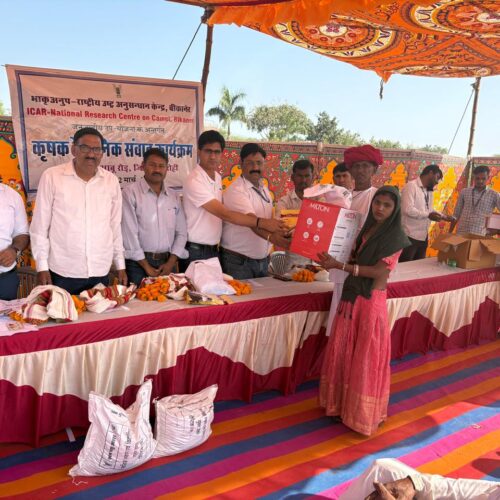
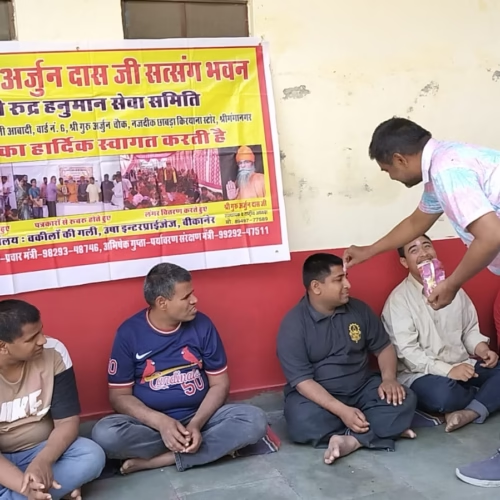
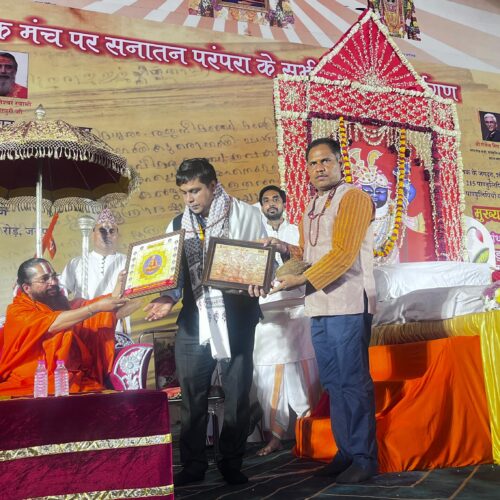
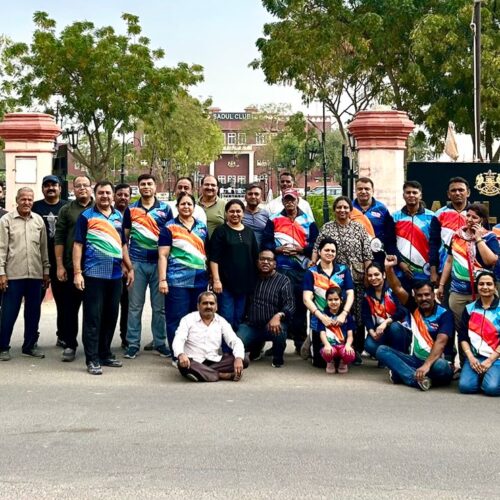
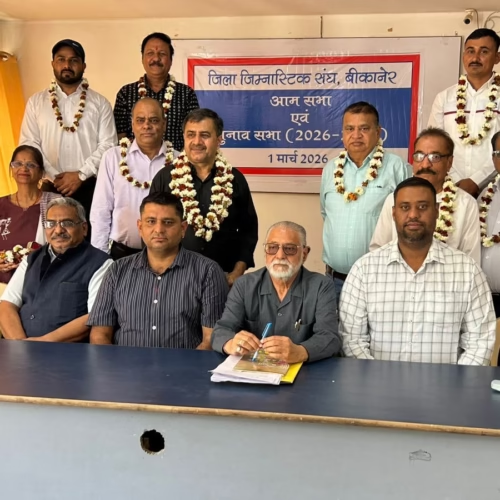
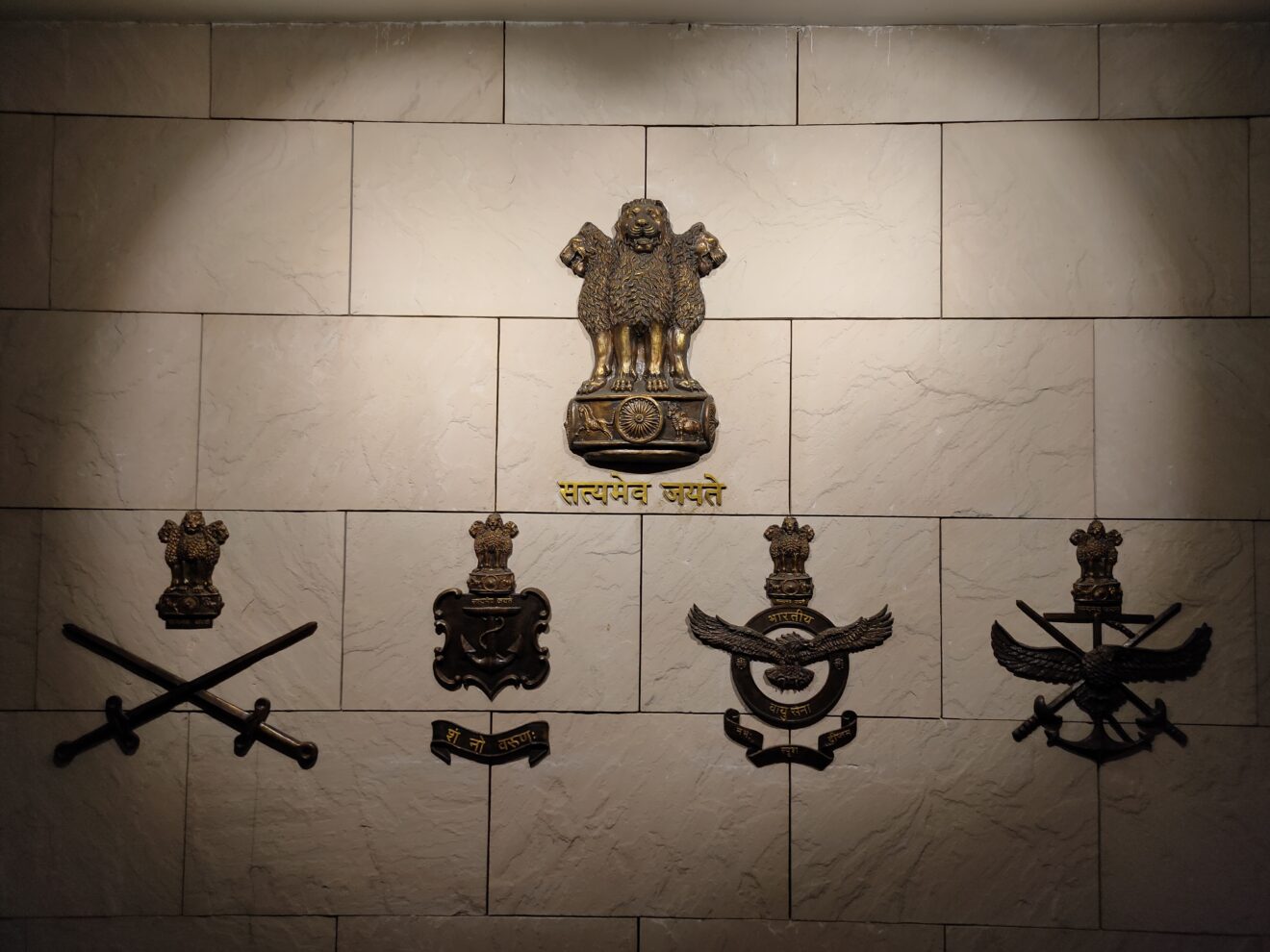



Add Comment